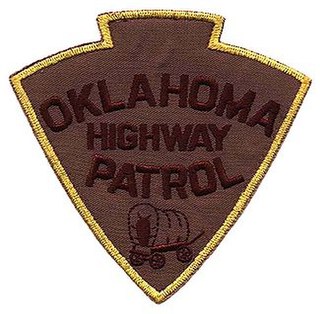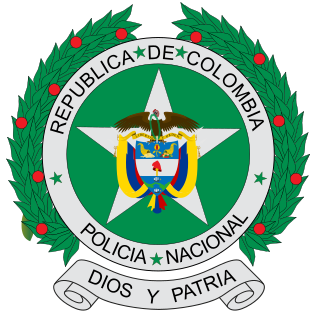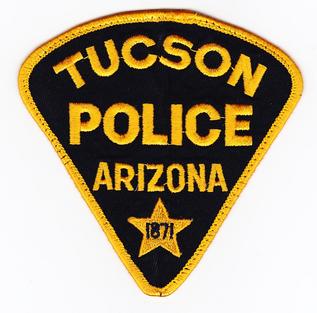
The police are a constituted body of persons empowered by a state with the aim of enforcing the law and protecting the public order as well as the public itself. This commonly includes ensuring the safety, health, and possessions of citizens, and to prevent crime and civil disorder. Their lawful powers encompass arrest and the use of force legitimized by the state via the monopoly on violence. The term is most commonly associated with the police forces of a sovereign state that are authorized to exercise the police power of that state within a defined legal or territorial area of responsibility. Police forces are often defined as being separate from the military and other organizations involved in the defense of the state against foreign aggressors; however, gendarmerie are military units charged with civil policing. Police forces are usually public sector services, funded through taxes.

A neighborhood watch or neighbourhood watch, also called a crime watch or neighbourhood crime watch, is an organized group of civilians devoted to crime and vandalism prevention within a neighborhood.

The Guardian Angels is a non-profit international volunteer organization with the goal of unarmed crime prevention. The Guardian Angels organization was founded on February 13, 1979, in New York City, by Curtis Sliwa. Since then, it has expanded to more than 130 cities and 13 countries worldwide.

Traffic police are police officers, units, and agencies who enforce traffic laws and manage traffic. Traffic police include police who patrol highways, direct traffic, and address traffic infractions. They may be a separate agency from a main police agency, a unit or division within a police agency, or a type of assignment issued to officers; they can also be part of a transportation authority or highway authority.

The Tampa Police Department (TPD) is the primary law enforcement agency for the city of Tampa, Florida. The Tampa Police Department has 985 authorized sworn law enforcement personnel positions and more than 350 civilian and support staff personnel positions. The current police chief is Lee Bercaw.

Law enforcement in Germany is constitutionally vested solely with the states, which is one of the main features of the German political system.

As of 2024, more than 1,280,000 sworn law enforcement officers are serving in the United States. About 137,000 of those officers work for federal law enforcement agencies.

Law enforcement in Canada is the responsibility of police services, special constabularies, and civil law enforcement agencies, which are operated by every level of government, some private and Crown corporations, and First Nations. In contrast to the United States or Mexico, and with the exception of the Unité permanente anticorruption in Quebec and the Organized Crime Agency of British Columbia, there are no organizations dedicated exclusively to the investigation of criminal activity in Canada. Criminal investigations are instead conducted by police services, which maintain specialized criminal investigation units in addition to their mandate for emergency response and general community safety.

In Brazil, the Federal Constitution establishes eight law enforcement institutions - seven titulars and one auxiliar. The titular institutions are: the Federal Police, the Federal Highway Police, the Federal Railroad Police, the Federal Penal Police, the State Military Police and Fire Brigade, the State Civil Police and the State Penal Police. Of these, the first four are affiliated to federal authorities and the latter three are subordinated to state governments. These public safety institutions are part of the Executive branch of either federal or state government. Apart from these eight institutions, there are others which affiliate to municipal authorities: the Municipal Guards. According to Minister Alexandre de Moraes of the Supreme Federal Court, "...the Municipal Guards are inserted in public safety as the auxiliary and related body of public security force..." Federal law 13,022 gave them de facto and de jure police attributions.

The Oklahoma Highway Patrol (OHP) is a major state law enforcement agency of the government of Oklahoma. A division of the Oklahoma Department of Public Safety, the OHP has traffic enforcement jurisdiction throughout the state. OHP was legislatively created on July 1, 1937, due to the growing problem of motor vehicle collisions, the expansion of highway systems, and the increase in criminal activities.

The National Police of Colombia is the national police force of the Republic of Colombia. Although the National Police is not part of the Military Forces of Colombia, it constitutes along with them the "Public Force" and is also controlled by the Ministry of Defense. The National Police is the only civilian police force in Colombia. The force's official functions are to protect the Colombian nation, enforce the law by constitutional mandate, maintain and guarantee the necessary conditions for public freedoms and rights and to ensure peaceful cohabitation among the population.

Law enforcement in Belgium is conducted by an integrated police service structured on the federal and local levels, made up of the Federal Police and the Local Police. Both forces are autonomous and subordinate to different authorities, but linked in regard to reciprocal support, recruitment, manpower mobility and common training.
An incident response team (IRT) or emergency response team (ERT) is a group of people who prepare for and respond to an emergency, such as a natural disaster or an interruption of business operations. Incident response teams are common in public service organizations as well as in other organizations, either military or specialty. This team is generally composed of specific members designated before an incident occurs, although under certain circumstances the team may be an ad hoc group of willing volunteers.

Sheriffs In the United States are the chief of law enforcement officers of a county. Sheriffs are usually either elected by the populace or appointed by an elected body.

In many countries, particularly those with a federal system of government, there may be several law enforcement agencies, police or police-like organizations, each serving different levels of government and enforcing different subsets of the applicable law.

The New York City Housing Authority Police Department was a law enforcement agency in New York City that existed from 1952 to 1995, which was then merged into the NYPD. The roots of this organization go back to 1934 and the creation of the New York City Housing Authority (NYCHA). New York City Mayor Fiorello H. La Guardia authorized the hiring of security guards to patrol the city's public housing buildings. These guards eventually were trained and became the first officers of the Housing Police, which was officially created in 1952. The Housing Police, along with the New York City Transit Police, was merged into the New York City Police Department in 1995 by New York City Mayor Rudy Giuliani and continues today as the Housing Bureau

The Gaston County Police Department is a law enforcement agency of Gaston County, North Carolina, United States. It is 1 of only two County Police police agencies within the State of North Carolina

The Tucson Police Department (TPD) is the law enforcement agency responsible for the city of Tucson. Sworn members of the Tucson Police Department are commissioned as peace officers by the Arizona Peace Officers Standards and Training (AZPOST) Board. This authority is valid throughout the State of Arizona at all times and locations.
Community policing is a philosophy and organizational strategy whereby law enforcement cooperates with community groups and citizens in producing safety and security. The theory underlying community policing is that it makes citizens more likely to cooperate with police by changing public perceptions of both the intention and capacity of the police. The theory is also that it changes attitudes of police officers and increases accountability.

C3 policing, also known as the Avghani model, is a crime prevention strategy for civilian law enforcement, loosely developed from military counterinsurgency strategies and currently used in the cities of Springfield and Chicopee in Hampden County, Massachusetts, United States.

















